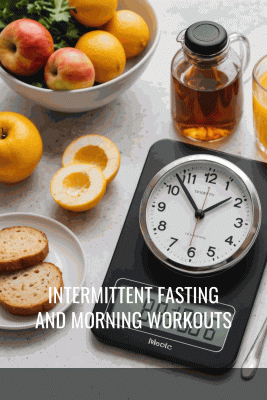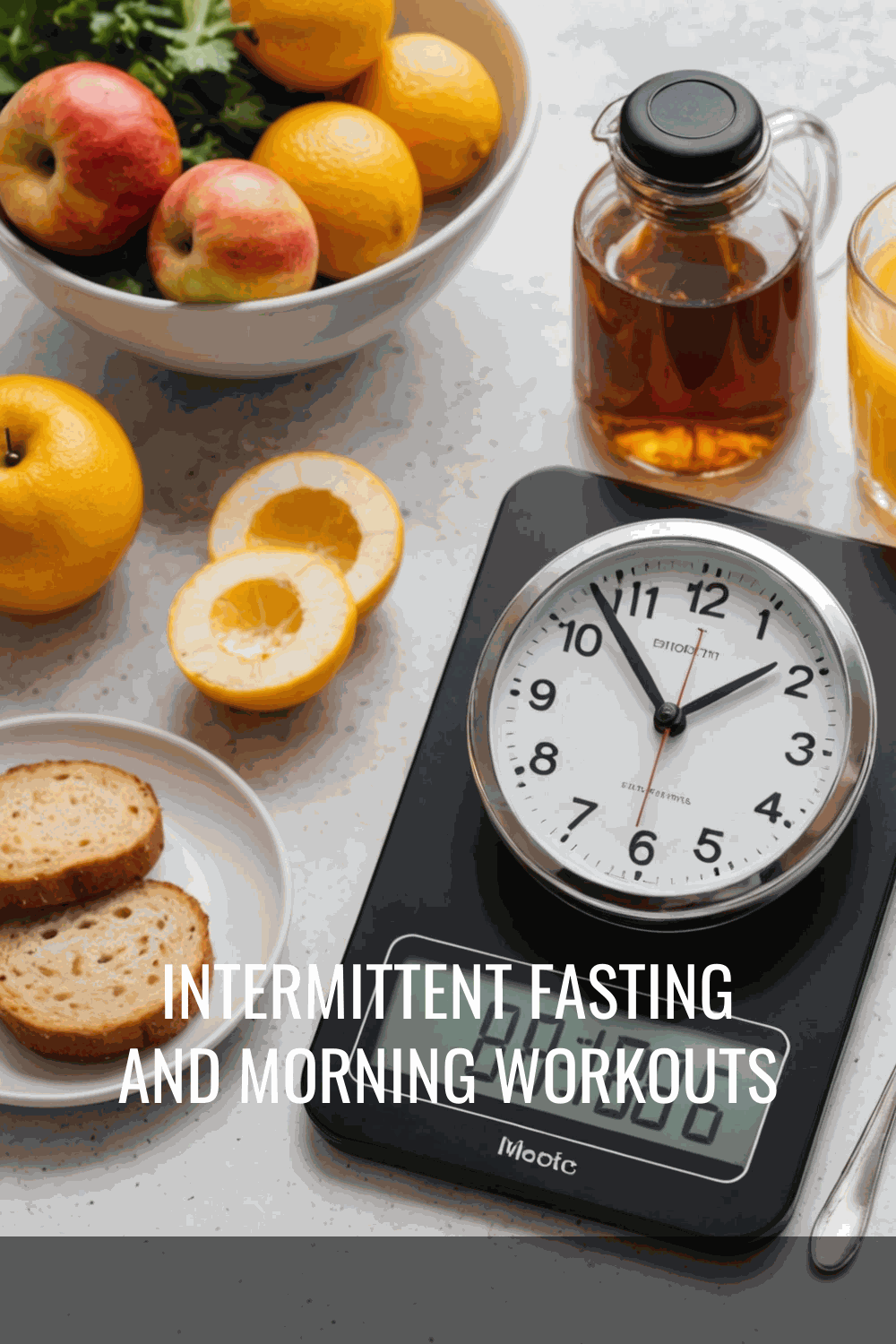
If you’ve ever wondered how to manage your post-workout meal when practicing intermittent fasting in the morning, you’re in the right place. In this comprehensive guide, we’ll clear up the confusion and provide you with all the information you need to make informed decisions about your fitness routine. So let’s dive right in!
The Confusion Around Breaking Your Fast for a Post-Workout Meal
Many individuals following intermittent fasting often face the dilemma of whether to break their fast early to consume a post-workout meal or to continue fasting and eat after the designated 16-hour period. This uncertainty arises because of the belief that consuming nutrients immediately after a workout is vital for muscle recovery and glycogen replenishment.
But does the timing of your post-workout meal truly make a significant difference in achieving your fitness goals? Let’s explore this topic further and uncover the secrets behind muscle recovery and nutrient timing.
Download Your Free Intermittent Fasting Guide
If you’re new to intermittent fasting or need a refresher, make sure to download our free intermittent fasting guide. It’s a comprehensive resource that covers everything you need to know about fasting, how to do it, and how it can positively impact your life. Click [here](link-to-intermittent-fasting-guide) to access your free guide and start your fasting journey today!
Understanding Muscle Fiber Breakdown and Glycogen Depletion
Before we dive into the topic of post-workout meal timing, it’s crucial to understand what happens to your body during a workout. When you engage in physical activity, your muscles undergo tiny tears, leading to muscle fiber breakdown. Additionally, your body depletes its glycogen stores, resulting in a feeling of fatigue.
It is commonly believed that consuming a post-workout meal immediately after exercising helps repair and rebuild these muscle fibers and replenish glycogen stores. However, recent scientific research challenges this traditional belief.
The McMaster Study on Post-Workout Meal Timing
McMaster University recently conducted a scientific study to examine the impact of post-workout meal timing on muscle recovery and performance. The study aimed to determine whether the timing of your post-workout meal has a significant effect on protein synthesis and muscle repair.
Surprisingly, the study results showed that there were no notable benefits to consuming your post-workout meal within a specific timeframe. The protein synthesis and muscle repair process remained the same regardless of whether individuals ate immediately after exercising or delayed their meal for up to 24 hours.
However, it’s important to note that the study does not recommend extending the post-workout meal beyond 24 hours. The key takeaway here is that delaying your meal within a reasonable timeframe, such as adhering to a 16-hour fasting window, does not have any negative consequences.
No Negative Consequences of Delaying Your Post-Workout Meal
Based on the McMaster study and real-life experiences, it’s safe to say that there are no negative consequences to delaying your post-workout meal within a reasonable window. As long as you provide your body with the necessary nutrients it requires within a 24-hour period, it can process and utilize these nutrients effectively.
What truly matters is the quality of the food you consume within that 24-hour window. Ensuring you provide your body with the right amount of proteins, carbohydrates, healthy fats, and essential nutrients is what ultimately promotes recovery, growth, and overall well-being.
The Importance of Nutrient Timing within a 24-Hour Window
When it comes to managing your meal timing while practicing intermittent fasting, it’s crucial to focus on the overall nutrient intake within a 24-hour period. Whether you engage in weightlifting, cardio, or a combination of both, the key is to ensure your body receives the required nutrients to support your fitness goals.
By prioritizing nutrient timing and balancing your macronutrient intake, you can optimize recovery, maintain energy levels, and maximize muscle growth. Remember, it’s not just about the immediate post-workout meal but the composition of your entire day’s meals.
Listening to Your Body and Extending Your Fasting Window
One of the fundamental principles of intuitive eating and intermittent fasting is listening to your body’s natural cues. If you workout in the morning and want to extend your fasting window to 16 hours, it’s entirely possible and can be done without negative consequences.
For example, if you completed your last meal at 8 p.m. the previous night and finish your morning workout at 9 a.m., you’ve already fasted for 13 hours. To achieve your desired 16-hour fasting window, you need to delay your first meal by three hours.
Of course, it’s essential to note that your body may feel hungry after a workout due to increased metabolism and nutrient demand. However, hunger is a natural instinct, and pushing through it is entirely up to you. It’s generally recommended to consume your first meal within a 90-minute window, but extending the fast further can be an experiment worth trying.
Breaking Down the Timing for Morning Workouts and 16-Hour Fasting
If you choose to extend your fasting window after a morning workout, it’s important to understand the timing and make informed decisions. Here’s a breakdown of how you can effectively manage your post-workout meal and achieve your 16-hour fasted window:
– Have your last meal at 8 p.m. the night before
– Wake up and head to the gym at 8 a.m.
– Finish your workout at 9 a.m.
– At this point, you have completed 13 hours of fasting
– To reach the desired 16-hour fasted window, delay your first meal by three additional hours
Remember, there are no negative consequences to extending your fasting window. Experiment with different timing strategies, listen to your body’s cues, and observe how it feels.
Dealing with Hunger and Managing Your Meal Timing
Extending your fasting window may lead to increased hunger, especially after a workout when your metabolism is heightened. However, it’s crucial to differentiate between actual hunger and habitual eating patterns. By practicing mindful eating and staying hydrated, you can better manage your hunger levels and make informed decisions about your meal timing.
It’s important to mention that extending your fasting window is a personal choice and may not be suitable for everyone. Pay attention to how your body responds and adjust accordingly. Remember, your overall well-being includes not just physical but also mental and emotional aspects.
Experimenting with Extended Fasting Window and Personal Results
Personal experiences and experimentation play an integral role in finding the right approach to intermittent fasting and post-workout meal timing. As an experienced advocate of fasting, I’ve experimented with extending my fasting window and have seen excellent results firsthand.
Remember, everyone’s body is unique, so what works for one person may not work the same way for another. It’s essential to understand your body’s needs and find a routine that aligns with your goals and preferences.
If you choose to extend your fasting window, share your experiences and thoughts in the comments below. We’d love to hear about your journey and any insights you’ve gained.
Subscribe for More Lean Living Content
If you found this guide helpful and want to stay up-to-date with the latest lean living content, make sure to subscribe to our channel. We have a lot more exciting and informative content coming your way, designed to help you achieve your fitness and wellness goals.
Learn About the 90 Day Lean Plan and Custom Workouts and Meal Plans at lean-squad.com
If you’re ready to take your fitness journey to the next level, check out our 90 Day Lean Plan. It’s a comprehensive program that provides custom workouts, personalized meal plans, and the support you need to achieve a healthier, fitter, and more confident version of yourself this summer. Visit [lean-squad.com](link-to-lean-squad-website) to learn more and start your transformation today!
Conclusion
Intermittent fasting and working out in the morning don’t have to be complicated. By understanding the science behind post-workout meal timing and listening to your body’s needs, you can effectively manage your fasting window while achieving your fitness goals.
Remember, there are no negative consequences to extending your fasting window within reason. Experiment, observe, and make informed decisions that align with your desired outcomes. By finding a balance between fasting, nutrient timing, and overall well-being, you can create a sustainable fitness routine that works for you.
FAQ
-
- Does delaying my post-workout meal negatively affect muscle recovery?
No, delaying your post-workout meal within a reasonable timeframe, such as adhering to a 16-hour fasting window, does not have any negative consequences. As long as you provide your body with the necessary nutrients it requires within a 24-hour period, it can effectively process and utilize these nutrients for muscle recovery and repair.
-
- Should I extend my fasting window after a morning workout?
Extending your fasting window after a morning workout is a personal choice and depends on your goals and preferences. If you want to achieve a 16-hour fasted window, you can delay your first meal by a few hours. Listen to your body, experiment, and find a routine that works best for you.
-
- Can I still build muscle while practicing intermittent fasting?
Yes, you can still build muscle while practicing intermittent fasting. It’s important to focus on overall nutrient intake, including a sufficient amount of protein, carbohydrates, and healthy fats, within your eating window. Remember, consistency, proper training, and balanced nutrition are key factors in muscle growth.


